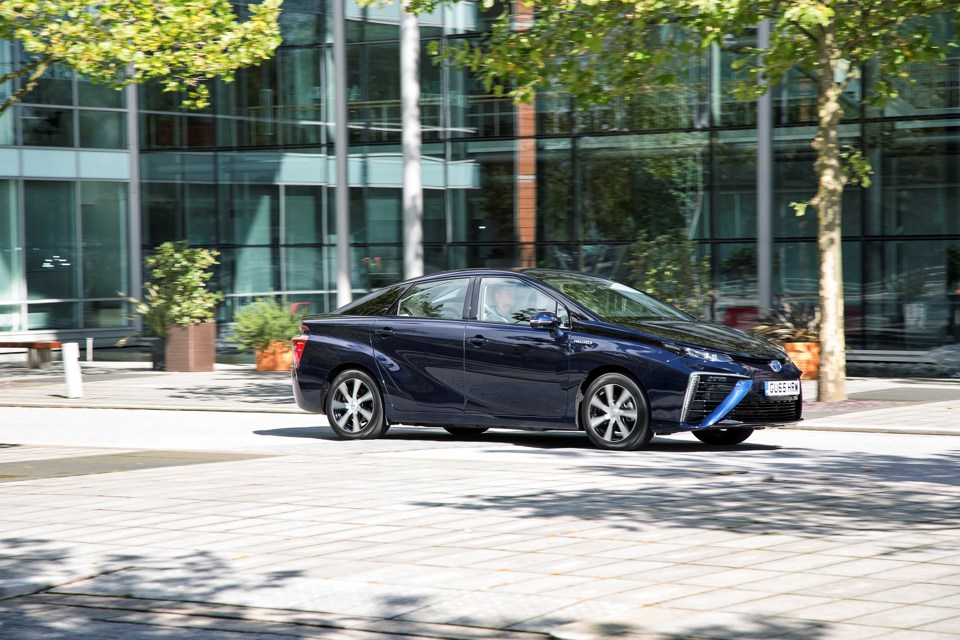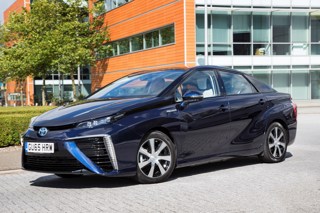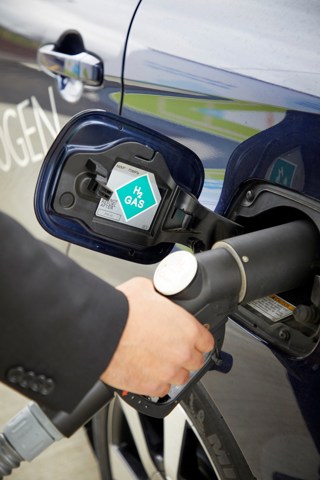Hydrogen powered cars will have much stronger residuals than combustion or electric models, members of the Vehicle Remarketing Association (VRA) heard at their monthly meeting last week.
Speakers looked at developments in hydrogen technology, availability of cars and likely sales.
Jon Hunt, manager of Toyota and Lexus fleet marketing, said: “In the case of a hydrogen fuel cell vehicle, the traditional residual value model no longer applies as unlike combustion engine or battery power trains the fuel cell does not wear out, extending the life and value of a vehicle with relatively low cost cosmetic refurbishment.
“As the vehicle also has all the advantages of quick refuelling and zero emissions, it is the most convenient and future proof technology available.”
Glenn Sturley, chair at the VRA, added that the meeting had shown members that, while some years from market as a viable choice, hydrogen cars offered a whole range of advantages.
"There are two main factors that need to be resolved – vehicle pricing and a fuelling infrastructure. Clearly, these will not be overcome in the short term but it is not unlikely that we could see hydrogen start to make a general push onto the market within a few years.
“These are cars that offer the drivability of an EV but can be fuelled as quickly as a petrol or diesel car, plus have zero emissions at the point of use and can potentially be powered by localised generation. Their advantages are obvious,” he said.
Speakers included Clare Jackson of Ecuity Consulting on the Swindon Hydrogen Hub and Paul Marchment of Arval on the company’s hydrogen fleet car trial.




















Login to comment
Comments
No comments have been made yet.